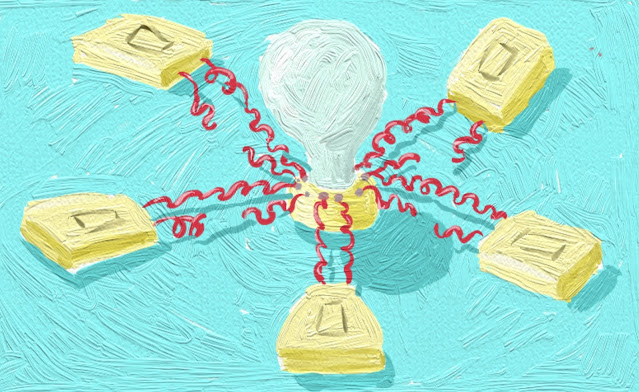Some of the wrong things we do in brainstorming
I think it’s a superhuman ability to be able to listen to the voice in our head while at the same time listening to people around us. That’s why I believe that we should be allowed to immerse ourselves in the creative challenge, alone and focused, before we gather around the brainstorming table.
With about 40 years of experience in creative and corporate work, I would know what things work and which ones would result in too much time and pizza consumed. Here’s my list:
Starting from scratch. It’s hard to think when being distracted by a group. We need time alone to reflect on the problem at hand. Maybe we need to do a little research too. Or time to read books and watch films for inspiration. We would want to have some ideas percolate in our minds before interacting with other people. One of my ad agency bosses used to advise us, “Come to the meeting intellectually prepared.”
Looking for the perfect solution. I have been to some idea meetings that seemed more like meditation sessions. People were silent because no one dared to suggest a half-cooked idea. The facilitator might have promoted the unspoken rule that people who suggest imperfect ideas will be punished.
The facilitator is "trigger-happy." A brainstorming leader who kills ideas on the spot will intimidate everyone in the group. No one wants to look dumb in the presence of their peers. It’s better for the leader to note down every contribution and consider each thought as a potential solution until it’s time to shortlist. It is true that many great ideas in the history of humankind were “stupid” concepts before they were polished.
Being too realistic. Idea-generation stalls when the facilitator or the participants keep saying things like “that’s not technically feasible,” “we don’t have the budget,” and “the boss hates stuff like that.” Such filters should not be applied until it’s time to shortlist.
Feeling too experienced. I have attended brainstorming sessions where not much is achieved because participants keep saying “we’ve done that before and it didn’t work.” There are also some who would simply fall back on the same old things they have been doing.
Being too serious. I have observed that laughter dissolves inhibitions in a meeting. When brainstormers freely share foolish, stupid, laughable ideas, great ideas have a better chance of showing up.
Being competitive. The session will not be fun and may not be productive if there are people who want to be smarter than others. In a corporate setting, it is possible that there are people jockeying for positions. In such a case, ideas are not objectively judged by rivals. The facilitator must be quick to spot and address such tension.
Being hungry. Studies revealed that some people make wrong decisions when lunch is late. They are irritable, impatient, and intolerant. Being too drunk can be bad too!
The group is too big. Idea generation with 20 people is not brainstorming. It’s the constitutional convention. When the group is large, many people will not be heard. Even more people will not feel obliged to participate.
Having only one idea. The genius scientist and author Linus Pauling said that the best way to have a good idea is to have a lot of ideas. That’s because any problem can have many possible solutions. It is best to have the luxury of choosing what’s best for the moment and still have other options in reserve.
Throwing away ideas. I have seen so many potential successes being forfeited because they don’t satisfy the needs of the current challenge. Those ideas, however, may be useful in other situations or for other people. I would suggest that such ideas be shared with other people who may be interested.
Being too pressured. If we force ourselves to have the “best solution” within an hour or so, our ideas may be half-cooked. My suggestion is for us to meet another day to review what we have so far discussed. In my experience, new perspectives and inspirations hit us when we are commuting or driving home, or when we’re buying groceries or mowing the lawn.
But let’s not think of ourselves as a solo genius. We still owe it to the brainstorming sessions that stimulated our minds.



Comments
Post a Comment